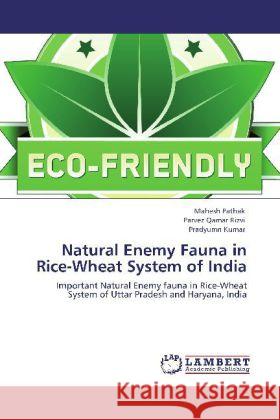Natural Enemy Fauna in Rice-Wheat System of India » książka
Natural Enemy Fauna in Rice-Wheat System of India
ISBN-13: 9783848423415 / Angielski / Miękka / 356 str.
Rice-Wheat cropping system covers about 11 m ha in India, is the backbone of India's food security. This cropping system produces as high as 12.8 to 17.0 t/ha/annum at different levels of cultivation and is highly nutrient depleting but the factors responsible for success of this system are good economic return, market infrastructural support and very little risk making increasingly popular with the farmers over the years. The introduction of the non-sensitive, input responsive, relatively early maturing varieties of rice and wheat in the mid 60's enabled farmers to intensify land use and increased the acreage under this important cropping system. In recent years, there is a problem to sustain the high yield levels of rice-wheat in India. Several factors including attack of insect pests and diseases are considered responsible for stagnation in productivity of this cropping system. The present investigations were, therefore, carried out with a view to monitor insect pests, diseases and natural enemies operating in rice and wheat ecosystems and to develop an effective bio intensive management strategy to contain population buildup of major insect pests and diseases of rice and wheat.











